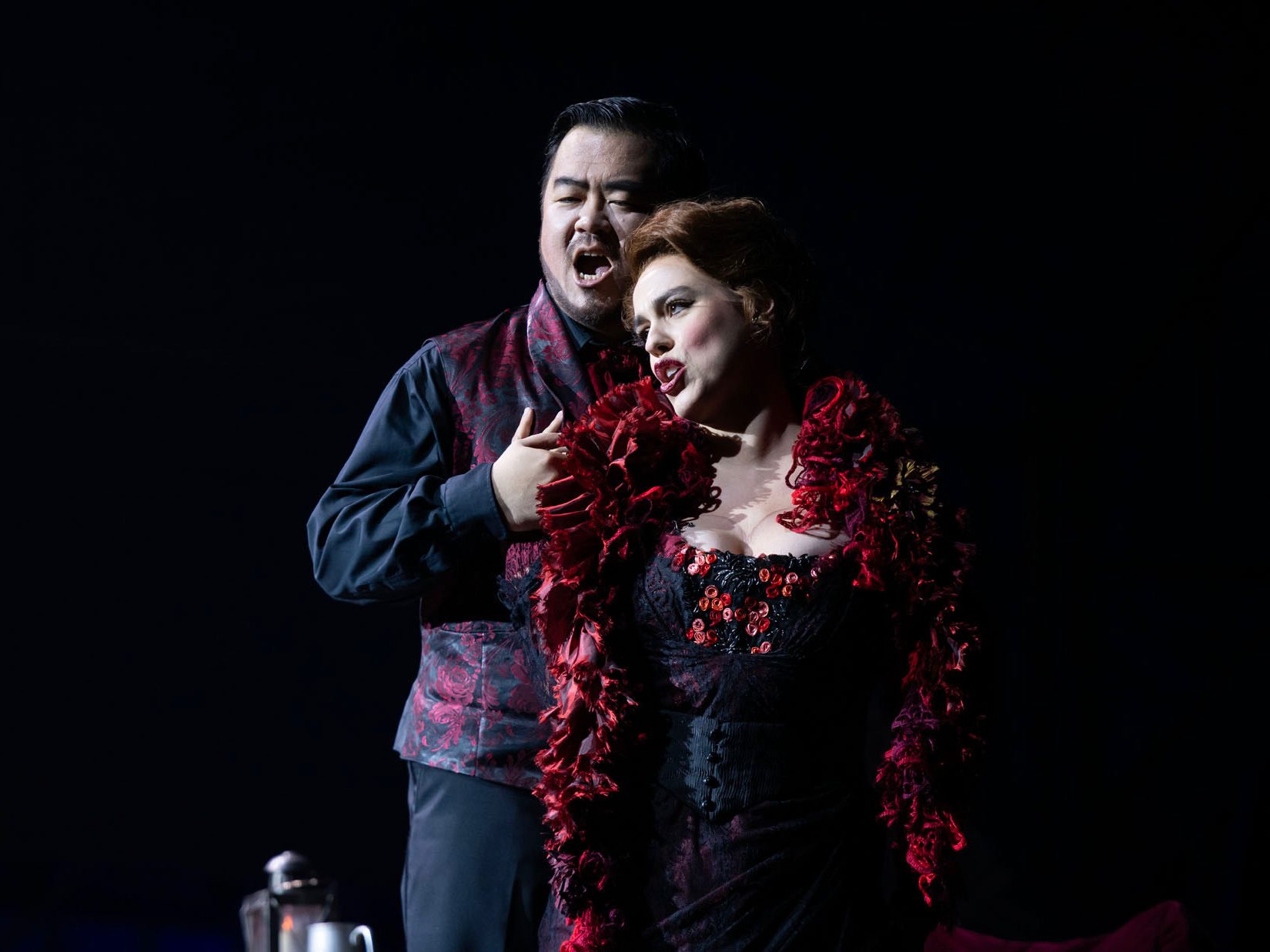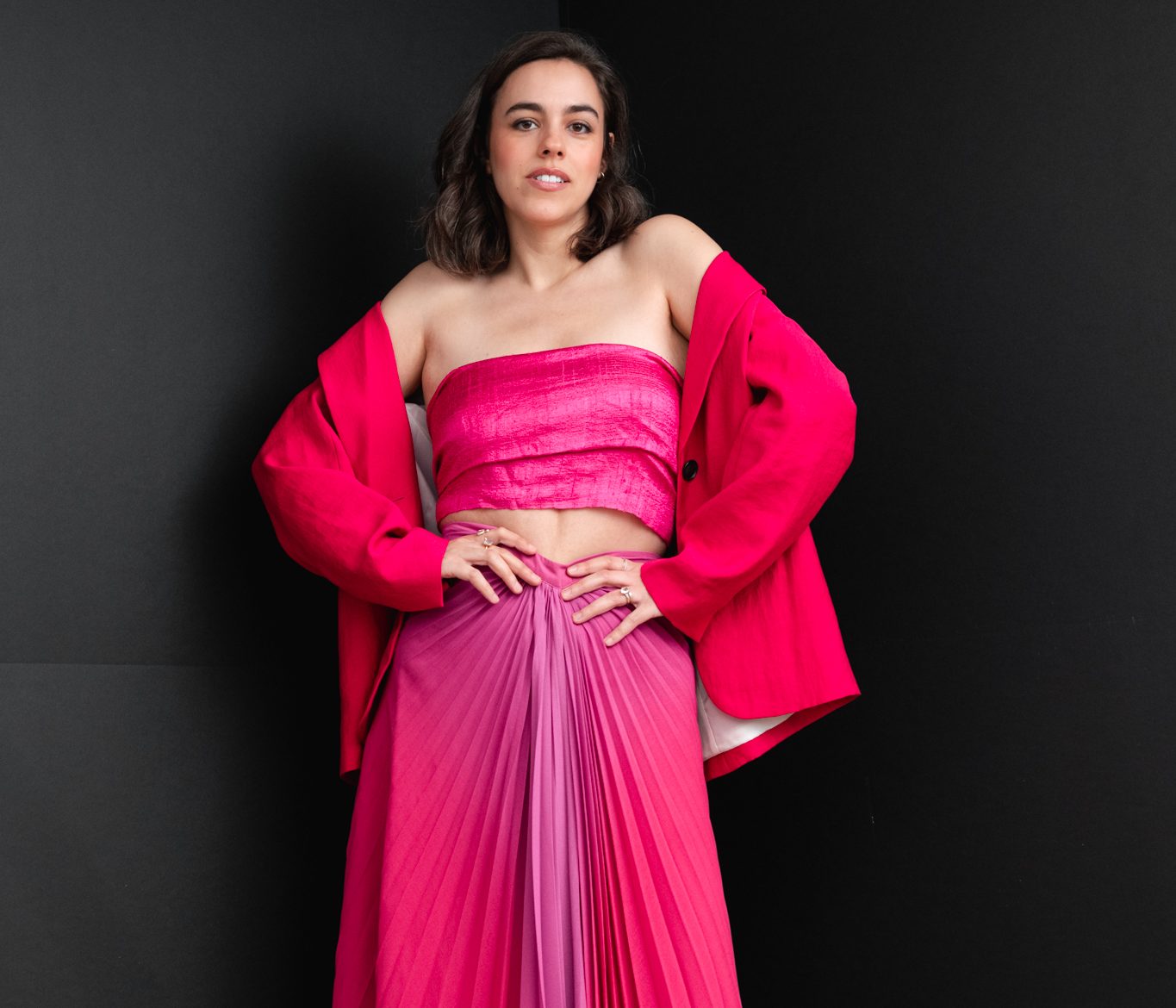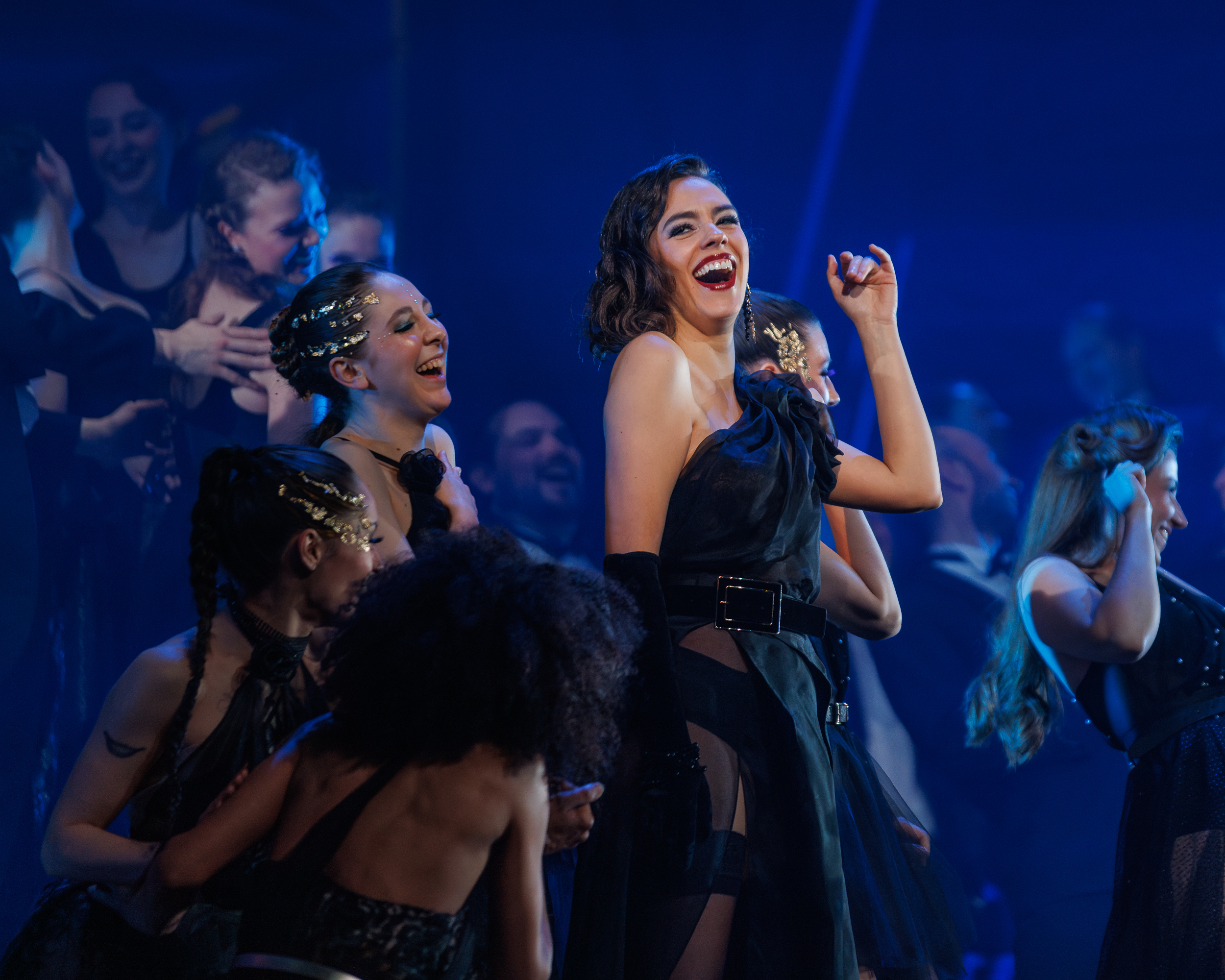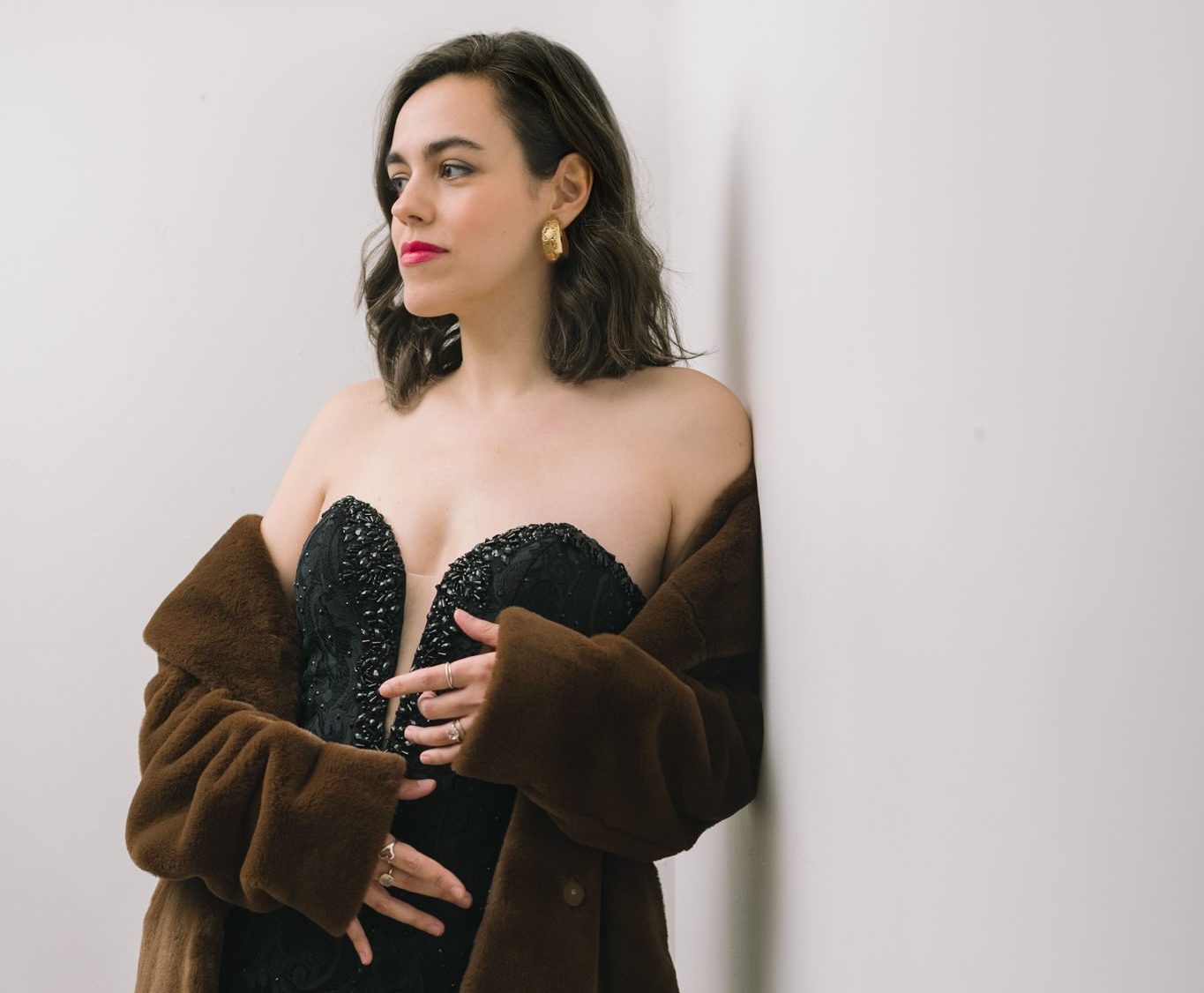By Tabitha Brasso-Ernst (Brand Engagement & Communications Coordinator) for Bachstage Pass
Fresh off her highly successful and sultry run as Maddalena in Vancouver Opera’s Rigoletto, mezzo-soprano Emma Parkinson barely pauses before stepping into the vaulted sanctuary of St. Andrew’s-Wesley United Church. On December 6, she joins the Vancouver Bach Choir as the mezzo-soprano soloist in Johann Sebastian Bach’s Christmas Oratorio—a work she calls “a built-in burst of joy.”
“There’s such a fantastic challenge built into Bach,” she says. “Mentally, spiritually, vocally—every part of you has to show up. But even through all the tricky counterpoint and the endless runs, there’s real joy in it. Maybe it’s the Christmas story itself, but it just feels uplifting.”

YongZhao Yu as The Duke and Emma Parkinson as Maddalena in Vancouver Opera’s Rigoletto. Photo courtesy of Emma Parkinson and Emily Cooper.
A Rarity Reborn
Unlike Handel’s Messiah, Bach’s Weihnachts-Oratorium isn’t a seasonal fixture on every December calendar. Premiered in 1734 for the six feast days of the Christmas season, the work unfolds as a cycle of six cantatas—each illuminating a different chapter of the Nativity narrative, from the birth of Christ to the visit of the Magi.
For this performance, Maestro Leslie Dala leads the Vancouver Bach Choir, the Vancouver Bach Choir Chamber Orchestra, and a superb quartet of soloists—Chloé Hurst (soprano), Emma Parkinson (mezzo-soprano), Colin Ainsworth (tenor), and Aaron Durand (baritone)—in the complete, uncut version of Bach’s monumental Christmas Oratorio.
Presenting the full work is a rare and ambitious undertaking, one that Dala has long dreamed of bringing to Vancouver audiences. A lifelong champion of Bach’s music, he approaches the score with both scholarly insight and deep emotional reverence.
“Hearing Bach in a church, with the sound ringing through that kind of space—it’s special,” says Parkinson. “There’s an intimacy to it that makes you feel the humanity behind all that counterpoint.”

Photo courtesy of Emma Parkinson and Ben Owens.
Between Technique and Transcendence
Parkinson approaches Bach with the same meticulous care she brings to Verdi or Mahler—but with a particular reverence for balance.
“I always tackle the vocal side first,” she explains. “There are leaps of sevenths, endless phrases where you’re thinking about breath support, and everything is so exposed. You have to be sure of every note.”
But that precision, she insists, is only the beginning. “Some people say Bach’s music should be void of emotion, just sung as written. But I can’t separate feeling from it. Once the technique is in my body, then I let the emotion in. There’s a beauty in that balance.”
Her reflections capture the paradox many singers describe: the way Bach’s music somehow opens the door to spiritual release. The mezzo line—hovering between the celestial soprano and the grounded bass—feels like a bridge between intellect and awe.

Emma Parkinson as Flora in Opéra de Massy’s La Traviata. Photo courtesy of Emma Parkinson and Georges Jabbour.
Returning Home to Early Music
Though Parkinson’s career has ranged from Verdi heroines to exciting contemporary premieres, early music remains her artistic home base. “It brings me back to my core,” she says. “There’s something raw and beautifully simple about it. You have to paint with the finest brush, and that realigns my technique—it reminds me what honest singing feels like.”
Bach, she adds, exemplifies that purity: “He wrote for the voice as if it were an instrument. You’re part of the texture, part of the design—it’s never about showing off.”
Rituals and Humanity
When concert night arrives, Parkinson’s pre-performance ritual is both practical and grounding.
“Lip-trills are my go-to,” she says with a laugh. “I’m a fidgeter, so sitting still is hard. I check the voice, breathe, sometimes do the 4-7-8 breathing to calm nerves. And I like chatting with my colleagues—it reminds me this is a team effort.”
And when the final chorus fades into silence, she hopes the audience feels what she does: connection.
“Live music gives us that sense of togetherness we’re all craving,” she says softly. “Sitting in a hall, breathing the same air, sharing the same sound—there’s nothing like it.”

Photo courtesy of Emma Parkinson and Ben Owens.
The Joy That Endures
Between the discipline of the score and the warmth of human connection, Parkinson captures what makes Bach’s Christmas Oratorio timeless: precision married to devotion, intellect intertwined with joy.
“There’s a beauty in not knowing why a piece moves you,” she reflects. “It just does.”
This December 6th, as St. Andrew’s-Wesley glows with candlelight and the first notes of Bach’s jubilant trumpets ring out, that beauty will need no explanation at all.
Event Details
Venue: St. Andrew’s-Wesley United Church, 1022 Nelson Street, Vancouver
Concert: 7:30 p.m.
Tickets HERE

